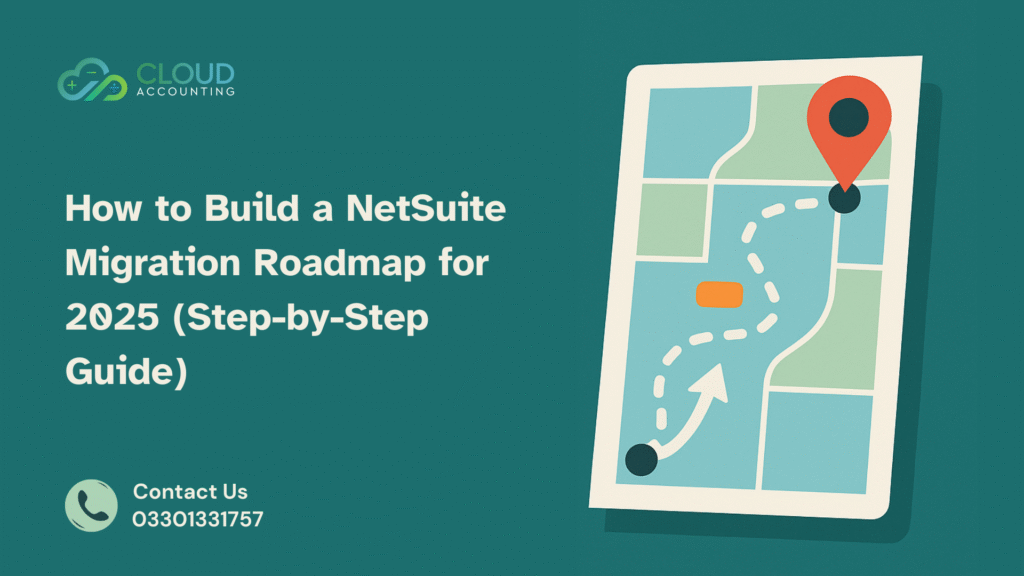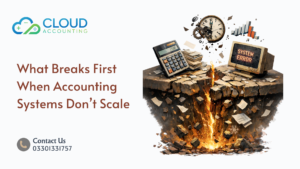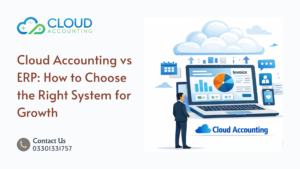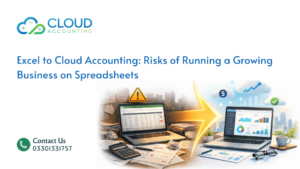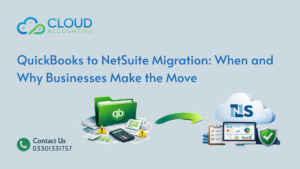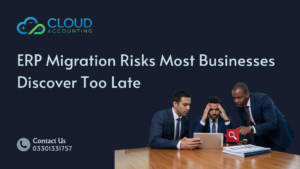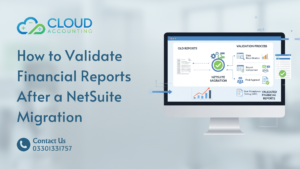In 2025, more businesses than ever are leaving legacy systems behind in favor of NetSuite. From finance teams looking for real-time reporting to enterprises expanding globally, the shift toward modern ERP is clear. But with such a big move, success depends on preparation. That’s where a NetSuite Migration Roadmap becomes essential. Without a roadmap, migration projects risk delays, data issues, and frustrated teams. With the right roadmap in place, however, your migration can be smooth, predictable, and aligned with your growth goals.
Why a NetSuite Migration Roadmap Is Essential in 2025
Migrating to NetSuite isn’t just about moving data. It’s about transforming the way your business operates. A well-planned NetSuite Migration Roadmap helps you:
- Navigate the complexity of compliance and audit requirements.
- Manage multi-currency transactions for international operations.
- Ensure data integrity when moving from QuickBooks, Sage, or Xero.
- Reduce risks of costly errors during the transition.
Without a roadmap, even the most promising NetSuite projects can go off track. In 2025, where businesses are scaling faster and regulations are tighter, the roadmap is not optional—it’s the backbone of migration success.
6 Core Stages of a NetSuite Migration Roadmap
Building your migration roadmap means breaking the journey into clear, actionable stages. Each step ensures your migration is structured, manageable, and results-driven.
1. Pre-Migration Audit & Planning
The first step in any NetSuite Migration Roadmap is to understand where you are today. Review your current systems, whether QuickBooks, Sage, or Excel, and identify:
- Which financial data needs to be migrated.
- Data gaps or compliance risks.
- Legacy processes that no longer serve your business.
This stage sets the foundation for your entire NetSuite migration strategy.
2. Data Cleansing & Preparation
Migrating messy or incomplete data only causes problems later. As part of your NetSuite Migration Roadmap, ensure:
- Duplicate records are removed.
- Data is standardized into correct formats (CSV, Excel).
- Inactive accounts and contacts are archived.
This is one of the most time-intensive steps, but it ensures that NetSuite data migration delivers accurate results.
3. Data Mapping to NetSuite Fields
Data must fit into NetSuite’s structure. A roadmap helps you map old system fields to NetSuite fields such as:
- General ledger
- Customers and vendors
- Invoices and payments
- Products and inventory
This step prevents mismatched fields and ensures smooth reporting after the migration. An effective NetSuite Migration Roadmap leaves no data unmapped.
4. Testing the Migration Plan
Before moving all your data, test the migration in a sandbox environment. Your NetSuite Migration Roadmap should include:
- Trial runs with sample data.
- Error reports and corrections.
- Validation checks to confirm accuracy.
Testing reduces surprises and gives your team confidence in the final migration.
5. Executing Full Migration
When testing is complete, it’s time to execute the full migration. A good NetSuite Migration Roadmap will:
- Schedule migration at low-activity times to reduce downtime.
- Monitor errors in real-time.
- Provide contingency plans if unexpected issues arise.
Execution is where planning pays off. Because the roadmap covers every detail, your migration is smoother and more reliable.
6. Post-Migration Training & Support
Even after data is successfully migrated, the work isn’t over. A complete NetSuite Migration Roadmap includes post-migration support such as:
- Training staff on new workflows.
- Setting up dashboards and reports.
- Ongoing support for integrations with ecommerce or payroll systems.
This ensures adoption across the business and unlocks the full potential of NetSuite.
Common Pitfalls Without a NetSuite Migration Roadmap
Skipping a structured roadmap often leads to costly mistakes. Common pitfalls include:
- Rushing without planning: Teams underestimate the complexity.
- Ignoring multi-currency handling: Causes errors in global accounts.
- Skipping staff training: Leads to low adoption and frustration.
- No monitoring: Issues go unnoticed until after go-live.
Each of these mistakes can be avoided by sticking to a proven NetSuite Migration Roadmap.
How to Tailor a NetSuite Migration Roadmap to Your Business
Not all businesses need the same roadmap. A growing SME and a global enterprise face different challenges.
For SMEs, a NetSuite implementation plan may focus on:
- Speed of migration.
- Simplified reporting and dashboards.
- Cost efficiency.
For enterprises, a NetSuite migration strategy might prioritize:
- Multi-subsidiary management.
- Complex compliance requirements.
- Advanced automation.
By tailoring your NetSuite Migration Roadmap to your size, industry, and goals, you’ll get maximum ROI from NetSuite.
Expert Tips for a Successful NetSuite Migration Roadmap
Building a migration roadmap is one thing—executing it effectively is another. Alongside the six core stages, these expert tips can make the difference between a smooth project and one filled with setbacks:
- Create a detailed NetSuite migration checklist before starting
A checklist keeps the project organized and ensures nothing is overlooked. It should cover everything from pre-migration data cleansing to post-go-live training. Breaking tasks into smaller milestones makes it easier to track progress and hold teams accountable. - Define clear KPIs to measure migration success
Success isn’t just about “getting it done.” Include measurable goals such as:
- Reduction in manual work post-migration
- Accuracy of migrated financial reports
- Minimal downtime during migration
- Staff adoption and training completion rates
By tracking KPIs, you’ll know whether your NetSuite Migration Roadmap is actually delivering results.
- Reduction in manual work post-migration
- Involve all stakeholders early—not just finance teams
While finance may be the primary driver, departments like sales, operations, and supply chain often rely on ERP data. Bringing them into discussions early ensures the roadmap reflects their needs, reduces friction, and speeds up adoption once NetSuite is live. - Work with an experienced partner to guide your migration
Many businesses underestimate the complexity of ERP transitions. Partnering with experts who understand both accounting principles and the technical side of NetSuite data migration can prevent costly errors. A partner can also provide templates, proven strategies, and ongoing support. - Plan for integrations beyond core accounting
A strong NetSuite Migration Roadmap should also account for CRM, payroll, eCommerce, and inventory integrations. This avoids future disruptions and ensures NetSuite becomes the single source of truth across your business. - Don’t skip change management and training
Technology is only effective if people use it. Building training sessions, video tutorials, and user guides into your roadmap makes the transition smoother. Pair this with ongoing support so employees feel confident working within NetSuite.
By applying these expert tips, your NetSuite Migration Roadmap becomes more than just a technical exercise—it becomes a business transformation tool designed for long-term success.
Conclusion
In 2025, businesses can no longer afford risky or unplanned ERP migrations. A NetSuite Migration Roadmap provides the structure, clarity, and confidence you need to succeed. From pre-migration audits to data cleansing, mapping, testing, and post-migration training, every step is critical to protect data integrity and business continuity.
The right roadmap doesn’t just move data from one system to another—it transforms the way your finance team operates. With better reporting, global compliance, and automation built into the plan, your migration becomes a launchpad for growth rather than just a technical project.
At Cloud Accounting, we’ve guided companies of all sizes—startups, SMEs, and multinational enterprises—through successful NetSuite data migration projects. Our approach focuses on minimizing disruption, safeguarding financial accuracy, and tailoring every NetSuite Migration Roadmap to your unique industry needs.
If you’re planning your own migration, don’t leave it to chance. With expert support, you can avoid common pitfalls, accelerate adoption, and unlock the full power of NetSuite.
Talk to our experts today and build a tailored NetSuite Migration Roadmap for your business growth in 2025.

